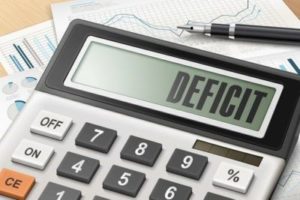
Investing in real estate rental property requires a great deal of research and understanding how property is going to generate cash flow from rental operations is an important aspect of that process. We understand the principal of having multiple streams of income and of course preferably passive streams of income. However, before you think that there is anything passive about real estate or for that matter investment properties, let’s get active and face the tiger in the eye. The tiger in this matter are real estate calculations, something we cannot avoid when we are serious about investment properties.
A simple cash flow calculation can illustrate the potential of rental real estate as an investment. Let us use a fourplex as an example and assume that all four units are destined for full-time rental. You have done your research and you made a good buy on the property. But how we go on from here? Here is what you can expect in cash flow from a rental.
Start with the Basics
The purchase price of the property was €325.000. You put 20% down—€65.000—and financed €260,000. The mortgage is a 30-year loan at 6.5% with a principal/interest payment of €1.643 a month. Please note that buying a home for yourself has a different mortgage interest than an investment property. The interest rates for investment properties are much higher!
Taxes and insurance at the time of purchase are €3,600 a year, or €300 a month, for a total payment of €1.943 a month.
Calculating Cash Flow
You are seeing a steady rental demand for these units, all of which stay occupied most of the time, but we will calculate a 6% vacancy and non-payment risk to anticipate real cash flow just to be prudent.
The units are all identical. They each rent for €900 a month.
The calculation would break down this way:
- Gross rental income is €900 x 4 units x 12 months = €43.200 per year.
- Your payments are €1.943 x 12 months = €23.316 per year.
- The previous owner’s repair expenses averaged €1.700 per year.
- Vacancy and credit loss are estimated at 6% of rents, or €2.592 per year.
- You spend about €400 each year in miscellaneous and you might manage the property yourself. Although for peace of mind and tax reasons we do Not recommend that you manage your properties by yourself but hire a qualified property manager.
These are the basic operational items that go into cash flow calculation. Rent income less vacancy loss less payments less expenses equals your cash flow:
€43.200 (gross rental income) less €2.592 (vacancy factor) less €23.316 (mortgage, taxes, and insurance) less €2.100 (repairs and costs) equals €15.192. This works out to €1.266 per month in positive cash flow over 12 months.
Costs can be tricky, however, because some do not happen every month. Stay on the safe side by treating them the same way as vacancies at a realistic percentage.
Cash on Cash Invested
Divide your actual cash investment of €65.000 down into the annual return of cash—which is €15.192—to analyze your return as “cash on cash invested.” This is a yield of 23% on your cash invested. There are few investments out there that yield this kind of return.
Cash Flow Can Be Fluid
Cash flow is a function of a great many inputs, and any or several of them can change and damage or improve the scenario. Some are influenced by the market and the economy.
For example, a major local employer might close or move, so the demand for rental property plummets overnight. This is something you cannot control, but you can potentially avoid disaster by doing your due diligence about the health and plans of local employers.
You are probably in good shape if the major employers are profitable with long leases that have recently been renewed.
Other factors that are out of your control include real estate taxes and property insurance. Taxes and premiums can increase, raising operating costs and lowering operating income and, by extension, cash flow. But these negative factors can be compensated for with other factors over which you do have some control.
For example, you might be able to find ways to reduce marketing, management, or maintenance costs. You can raise rents if the rental market is strong, but this can be a delicate balance because it might increase vacancies. The loss of income from more vacant units can easily wipe out any gains from increased rents.
Other Calculations
This is by no means the only way to calculate cash flow for a rental property, although it might well be the easiest. You can include additional calculations on the way to your bottom line.
Some other methods include tax savings you might realize thanks to property ownership, and still, others separately break down net operating income. But this simple formula should give you a clear-cut head start on what you need to know before investing.
In Conclusion:
Buy low – Sell high is saying that has been overused. However, when it comes to saving on the purchase price of any real estate I can advise to be prudent when the market situation permits. It’s highly recommendable to hire a buyer’s agent in any market to protect you from you. An experienced buyer’s agent can easily help you making calculations for you and show you if you should buy or wait for the next opportunity, which will surely come around next week.
Buying an investment property in the Netherlands or anywhere else, for that matter can be daunting but with a buyer’s agent it should be a pleasant experience for everyone involved. A real estate deal is a good deal when everyone is happy!
Karola Grünenbaum, director Stark Real Estate